Israel’s military spending surged by an unprecedented 65% from 2023 to 2024, amounting to $46.5 billion—one of the highest per capita rates worldwide. Behind this massive military expenditure stands a complex network of banking and financial companies that support Israel through various investment and lending practices.
The impact of these financial relationships is significant. By December 25, Israel had received more than 10,000 tons of weapons in 244 cargo planes and 20 ships from the U.S. alone. Meanwhile, financial institutions like Barclays have been rated “worst” for their policies on weapons and military financing. Additionally, major players in the global banking system, including Bank of Ireland Group and Virgin Money Group, have failed to disclose their investments in military and weapons. At the same time, these financial flows have real-world consequences—Israel’s military actions have resulted in the destruction of over half of Gaza’s buildings, including homes, schools, and hospitals.
This article examines the major banks that support Israel, investment firms funding occupation, and how these financial relationships contribute to ongoing conflicts. By understanding the connections between banking institutions and military actions, readers can make more informed decisions about their own financial choices.
Understanding the Financial Web Behind Israel’s Support
The financial web supporting Israel’s military operations extends far beyond simple investments. Financial institutions play a crucial role in enabling Israel’s ongoing military actions through strategic bond underwriting, asset management, and direct financing of companies involved in the occupation.
How Banking and Financial Companies That Support Israel Become Complicit
The financial sector’s involvement in supporting Israel’s military operations became particularly evident following October 2023. An investigation by Netherlands-based financial research group Profundo revealed that Israel issued sovereign bonds worth $19.40 billion between October 7, 2023, and January 2025. These “war bonds” were primarily underwritten by seven major banks, with Goldman Sachs leading by underwriting more than $7.00 billion. The other significant underwriters included Bank of America, Deutsche Bank, BNP Paribas, Citigroup, Barclays, and JPMorgan Chase.
This bond underwriting process serves as a crucial financial lifeline. By bringing Israel’s bonds to market, these banking institutions effectively facilitated the financing that enables Israel to continue its military operations. Furthermore, the 20 largest institutional investors—primarily US asset managers and asset management arms of US banks and insurance companies—provided more than $2.70 billion in financing through bond purchases since the start of the conflict.
The financial sector’s involvement extends beyond bonds. Barclays, for instance, has increased its investments in companies supplying arms to Israel by 55% since 2021, now owning shares worth over £2 billion while providing an additional £6.1 billion in loans and underwriting to nine companies supplying weapons and military technology to Israel. Research has also identified Barclays as Europe’s sixth-largest creditor of businesses operating in Israel’s illegal settlements in the occupied West Bank.
The role of financial institutions in conflict zones
Financial institutions operating in conflict zones face heightened legal and ethical responsibilities. According to UN experts, companies and financial institutions providing support to Israel’s military offensive may face “repercussions for complicity” in serious violations of international human rights and humanitarian law, potentially including genocide.
The legal framework for corporate responsibility has historical precedents, notably in the post-Holocaust Industrialists’ Trials, which established the groundwork for recognizing international criminal responsibility of corporate executives participating in international crimes. Similarly, South Africa’s Truth and Reconciliation Commission helped shape corporate responsibility standards by addressing corporate complicity in apartheid.
Today, the UN Guiding Principles on Business and Human Rights establish that corporate entities must observe heightened human rights due diligence in conflicts to identify concerns and adjust their conduct accordingly. Crucially, due diligence alone doesn’t absolve corporations of liability—their actions and human rights impact determine accountability.
The role of financial institutions in conflict zones is particularly significant because they can either exacerbate or mitigate violence. Weak financial regulation increases conflict risk by facilitating fraud that destroys savings and living standards. Moreover, financial liberalization without adequate democratic oversight of regulation often allows banks to operate with minimal restrictions.
The consequences of these financial relationships are substantial. The Tel Aviv Stock Exchange rose an unprecedented 179%, adding $157.90 billion in market value since October 2023, illustrating how financial institutions can profit from conflict while simultaneously enabling its continuation through their investments, loans, and underwriting activities.
Major Banks That Support Israel: A Closer Look
Six global banking giants stand at the center of Israel’s financial support system, channeling billions of dollars through various mechanisms. These institutions have become instrumental in Israel’s ability to fund its military operations despite international criticism.
1. Barclays
Barclays serves as one of seven foreign lenders helping the Israeli government sell debt. The British banking giant has significantly increased its investments in companies supplying arms to Israel by 55% since 2021, now owning shares worth over £2 billion while providing an additional £6.1 billion in loans and underwriting to nine companies supplying weapons and military technology to Israel. Despite facing pressure from pro-Palestinian activists and disruptions at its annual shareholder meeting, Barclays recently reaffirmed its commitment to Israel after briefly considering withdrawal from Israeli government bond auctions. The bank maintains it does not invest its own money in companies supplying weapons used in Gaza, claiming it only trades shares in such companies on behalf of clients.
2. HSBC
HSBC Group has been rated “worst” for its policies regarding financing military/weapons companies linked to Israeli settlements. However, the banking giant did take action in 2018 when it divested from Israeli arms firm Elbit Systems following a campaign by pro-Palestinian activists. Prior to this divestment, HSBC had approximately £3.1 million (USD 3.92 million) invested in Elbit Systems. Nevertheless, activists continue to pressure HSBC regarding its reported £99.5 million worth of shares in Caterpillar, whose equipment is used to bulldoze Palestinian homes and build illegal settlements.
3. JP Morgan Chase
JP Morgan Chase has underwritten significant portions of Israeli “war bonds” since October 2023. The bank has publicly maintained support for Israel following Hamas’ attack, with CEO Jamie Dimon and the executive committee issuing a companywide memo stating that “terrorism and hatred have no place in the civilized world”. Despite this public stance, JP Morgan has faced protests from pro-Palestinian activists for its investments in Elbit Systems, with demonstrators in Massachusetts demanding that customers close their accounts. Concurrently, the bank has expanded its Israel Tech Center in Herzliya, growing from five employees to 130, with plans for further recruitment.
4. Bank of America
Bank of America ranks among the top underwriters of Israeli “war bonds,” having facilitated crucial financing enabling Israel’s military operations. Between October 2023 and January 2025, it helped underwrite sovereign bonds with a total value of USD 19.40 billion. The bank maintains investments in Israeli companies, including a USD 710 million debt financing round for Enlight, an operator of solar and wind power facilities, in September 2024. Activists have claimed Bank of America was part of a USD 500 million loan deal with a consortium of lenders to Elbit Systems, Israel’s largest weapons manufacturer.
5. Deutsche Bank
Deutsche Bank provided USD 12.03 billion in loans and underwritings to companies operating in Israeli settlements, making it the second largest creditor after BNP Paribas. The bank has expressed concern about rising antisemitism globally and pledged 1 million euros to educate youth on tolerance and empathy. In November 2023, Deutsche Bank’s Management Board condemned the terrorist attacks in Israel while expressing concern about the humanitarian crisis in Gaza. The bank continues to maintain business relationships in Israel, reportedly leading a private placement financing round for One Zero, a digital banking start-up based in Tel Aviv.
6. BNP Paribas
BNP Paribas stands as Europe’s biggest lender to settlement-supporting companies, providing USD 17.30 billion in loans and underwriting to 27 companies operating in Israeli settlements. The French banking giant has faced significant criticism and legal action, with the legal group Jurdi taking BNP Paribas to court for “failure to fulfil its duty of vigilance,” accusing the bank of not disclosing its activities supporting Israel. The bank has been criticized for providing a USD 8 billion bond subscription for the Israeli government and its support for Elbit Systems. In 2024, Belgian NGOs revealed that BNP Paribas Securities Corp North America traded two million shares in Elbit during the first quarter of 2025.
Investment Firms and Asset Managers Funding the Occupation
Beyond traditional banking support, investment firms and asset managers play a crucial role in funding Israel’s military operations through their extensive portfolio investments. These financial behemoths manage trillions in assets globally while maintaining significant stakes in companies directly linked to Israeli military activities.
1. BlackRock
As the world’s largest asset manager, BlackRock has operated in Israel since 2016 and maintains substantial investments in companies supplying Israel’s military. BlackRock holds $68 million in Israeli bonds and serves as a major institutional investor in several defense contractors. It maintains significant stakes in Palantir (8.6%), Microsoft (7.8%), Amazon (6.6%), Alphabet (6.6%), IBM (8.6%), Lockheed Martin (7.2%), and Caterpillar (7.5%). Through its iShares ETFs, BlackRock provides critical financial backing to companies directly involved in Israeli military operations.
2. Vanguard
As the second-largest global asset manager, Vanguard holds $546 million in Israeli bonds and maintains dominant positions in companies supplying Israel’s military. Vanguard stands as the largest institutional investor in Caterpillar (9.8%), Chevron (8.9%), and Palantir (9.1%), while serving as the second-largest investor in Lockheed Martin (9.2%) and Elbit Systems (2%). These investments channel substantial capital to companies directly involved in Israel’s military activities.
3. UBS
The Swiss banking giant UBS demonstrates its support for Israel through direct humanitarian funding initiatives. UBS Optimus Foundation launched a fundraising appeal following Hamas attacks, raising $20 million in donations and matching funds. Initially offering a 100% match up to $5 million, UBS continues to match donations at 10%. The foundation partners with organizations including the International Committee of the Red Cross and Magen David Adom (Israeli Red Cross).
4. Legal & General
Legal & General Investment Management (LGIM) holds significant investments in Israeli companies. Together with Phoenix, BlackRock, Vanguard, and Fidelity International, LGIM collectively owns 21% of Energean’s stock, along with positions in several TA-35 performers. Though claiming to take stewardship responsibilities seriously, LGIM maintains that index providers, not asset managers, select securities forming tracked indices.
5. Allianz and AXA
German insurance giant Allianz, through its asset management subsidiary PIMCO, holds $960 million in Israeli bonds and invests at least $7.3 billion in companies linked to Israel’s military operations. Conversely, French insurer AXA has gradually divested from Israeli banks and arms manufacturer Elbit Systems following activist pressure. After initially holding $4.09 billion in tracked companies, AXA reportedly completed divestment from Bank Hapoalim, Israel Discount Bank, and Bank Leumi by June 2024.
How These Companies Are Involved: Arms, Tech, and Settlements
The military and financial backing for Israel materializes through tangible corporate involvement across multiple sectors, creating a complex ecosystem that sustains occupation and conflict.
Arms manufacturers and military contracts
The United States dominates Israel’s arms supply chain, providing 69% of Israel’s weapon imports in 2023. Germany follows as the second largest supplier at 30%, with Italy contributing 0.9%. At the core of this military relationship is the F-35 fighter jet program, involving over 1,600 companies across eight nations, led by US-based Lockheed Martin. These fighter jets have been integral to Israel’s unprecedented aerial power, enabling the dropping of an estimated 85,000 tons of bombs on Gaza. Even as some European nations have reduced arms exports, the US recently approved a $20 billion weapons package for Israel, including fighter jets and advanced missiles.
Tech companies and surveillance infrastructure
Major tech giants provide critical infrastructure enabling Israel’s military operations. Amazon’s AWS stores intelligence information collected through mass surveillance of Gaza’s population, offering “endless storage” capacity for intelligence on “almost everyone” in Gaza. Subsequently, Microsoft, Google, and Amazon grant Israel “virtually government-wide access to their cloud and AI technologies” through Project Nimbus, a $1.2 billion contract primarily funded by the Ministry of Defense. This technological backbone supports AI-targeting systems, such as “Lavender,” “Gospel,” and “Where’s Daddy?” used to generate target lists. Palantir Technologies expanded its support to the Israeli military after October 2023, providing predictive policing technology and automated decision-making tools for battlefield operations.
Real estate and illegal settlements
Real estate companies actively market properties in illegal Israeli settlements, with firms organizing expos across North America targeting Jewish Americans. Despite international law considering these settlements illegal under the Geneva Conventions, companies list properties in major settlements like Ma’ale Adumim and Efrat alongside homes in Israel proper, often without acknowledging their status as settlements. These properties, while expensive ($500,000 to $1 million), are significantly cheaper than comparable homes in central Jerusalem ($3 million). Facebook has platformed over 100 paid advertisements promoting illegal settlements, with Meta profiting from content that potentially violates international law.
Consumer brands and supply chains
Corporate involvement extends to practical infrastructure supporting occupation. Companies like Caterpillar, HD Hyundai, and Volvo provide heavy machinery used in settlement construction. Heidelberg Materials AG, through its subsidiary Hanson Israel, has contributed to pillaging millions of tons of rock from Palestinian villages for settlement construction. Travel companies, including Booking.com, Airbnb, and TripAdvisor, list and promote properties in occupied territories. Even agricultural technologies support the occupation, with Netafim (80% owned by Mexico’s Orbia) providing irrigation infrastructure that exploits water resources in the occupied West Bank.
Legal and Ethical Implications for Financial Institutions
Financial institutions are facing mounting legal scrutiny as international frameworks increasingly hold companies accountable for their roles in conflict zones. This legal landscape creates significant risks for banks and investors with ties to Israel’s military operations.
International Law and the Arms Trade Treaty
The Arms Trade Treaty explicitly prohibits arms transfers when weapons might be used for genocide, crimes against humanity, or war crimes. States must assess risks before authorizing arms exports, with most domestic arms control regimes requiring officials to block weapons sales if they know—or should have known—these weapons could violate laws of war. Consequently, financial institutions funding arms manufacturers face potential legal exposure as third parties.
Corporate complicity and human rights violations
Under established legal precedents, corporate executives can face international criminal liability for participation in international crimes. The UN Guiding Principles establish that companies must observe heightened human rights due diligence in conflicts. Financial institutions directly linked to human rights impacts must exercise leverage or consider terminating relationships—failure to act accordingly may trigger liability.
Investor responsibility and due diligence
Investors face increasing pressure as purportedly “ethical” funds potentially fund human rights abuses. Socially responsible investment funds manage approximately three trillion euros globally, with 84% held by European investors. In fact, many pension funds relying on advisory firms like Morningstar Sustainalytics, and MSCI for ethical guidance discover these advisors no longer flag potential violations in occupied territories, creating significant blind spots in investor due diligence.
This article is part of our boycott series. For the complete list and category-wise breakdown, read: Companies That Support Israel.
Final Thoughts
The relationship between global finance and Israel’s military apparatus is no longer hidden behind vague corporate statements or abstract investment portfolios. It is a deeply entangled web of underwriting, lending, and investment activity that sustains a system responsible for one of the most devastating humanitarian crises of our time. From arms shipments funded through sovereign bonds to AI-driven military technologies powered by Silicon Valley giants, the infrastructure of occupation is as much financial as it is political or military.
Institutions like Barclays, JPMorgan, BlackRock, and Vanguard aren’t just passive investors—they are active enablers of military aggression and systemic human rights violations. Their financial decisions directly impact the ability of a state to conduct war, maintain blockades, and operate within territories deemed illegal by international law. The ethical and legal burden is not abstract. It is urgent, and it is actionable.
For individuals, understanding this financial network is more than awareness—it’s about accountability. Every investment, pension fund, or banking choice made by consumers can either help dismantle or reinforce a system of violence. As calls for boycott, divestment, and sanctions grow louder, the responsibility to scrutinize where our money flows becomes impossible to ignore.
In a world where financial power often translates into geopolitical influence, complicity is not a passive state—it’s a choice. And with that choice comes the question: Are we funding justice or injustice?
FAQs
Q1: Which banks are funding Israel’s military operations?
Several major banks, including Barclays, JPMorgan Chase, Bank of America, Deutsche Bank, BNP Paribas, and Citigroup, have underwritten Israeli sovereign bonds since October 2023. These “war bonds” finance Israel’s military actions, making these institutions financially complicit in ongoing conflicts.
Q2: What is the role of investment firms like BlackRock and Vanguard in supporting Israel?
BlackRock and Vanguard hold hundreds of millions in Israeli bonds and maintain major stakes in companies such as Lockheed Martin, Elbit Systems, and Caterpillar—key suppliers to the Israeli military. Through ETFs and institutional investments, they indirectly finance military operations and illegal settlements.
Q3: How does Barclays support Israel?
Barclays owns over £2 billion in shares and has provided £6.1 billion in loans and underwriting to arms manufacturers supplying Israel. Despite public pressure and shareholder protests, Barclays continues to play a major role in facilitating financial flows to companies involved in Israel’s military activities.
Q4: Are financial institutions legally responsible for funding war crimes?
Under international law and frameworks like the Arms Trade Treaty and UN Guiding Principles on Business and Human Rights, financial institutions that knowingly fund entities involved in war crimes or genocide can face legal scrutiny and potential complicity charges.
Q5: What is the connection between banks and illegal Israeli settlements?
Banks such as BNP Paribas and Deutsche Bank have financed companies operating in illegal settlements in the occupied West Bank. These activities are considered violations of international law, and banks may be held accountable for failing to fulfill their due diligence responsibilities.
Q6: Can my personal bank account or investment contribute to this funding?
Yes. If your bank or pension fund invests in ETFs or mutual funds holding shares in companies linked to Israeli military operations, your money may indirectly support the occupation. Reviewing and choosing ethical investment options is a form of financial activism.
Q7: What are “war bonds,” and how are they used by Israel?
War bonds are government-issued bonds used to raise funds specifically for military expenditure. Since October 2023, Israel has issued over $19 billion in war bonds, underwritten by major banks, to fund weapons purchases and military operations in Gaza and other territories.
Q8: Is there any regulation preventing banks from supporting military actions?
While regulations exist, like the Arms Trade Treaty and domestic laws in many countries, enforcement is often weak. Many financial institutions exploit legal gray areas or act through subsidiaries, making accountability difficult without public pressure and legal action.

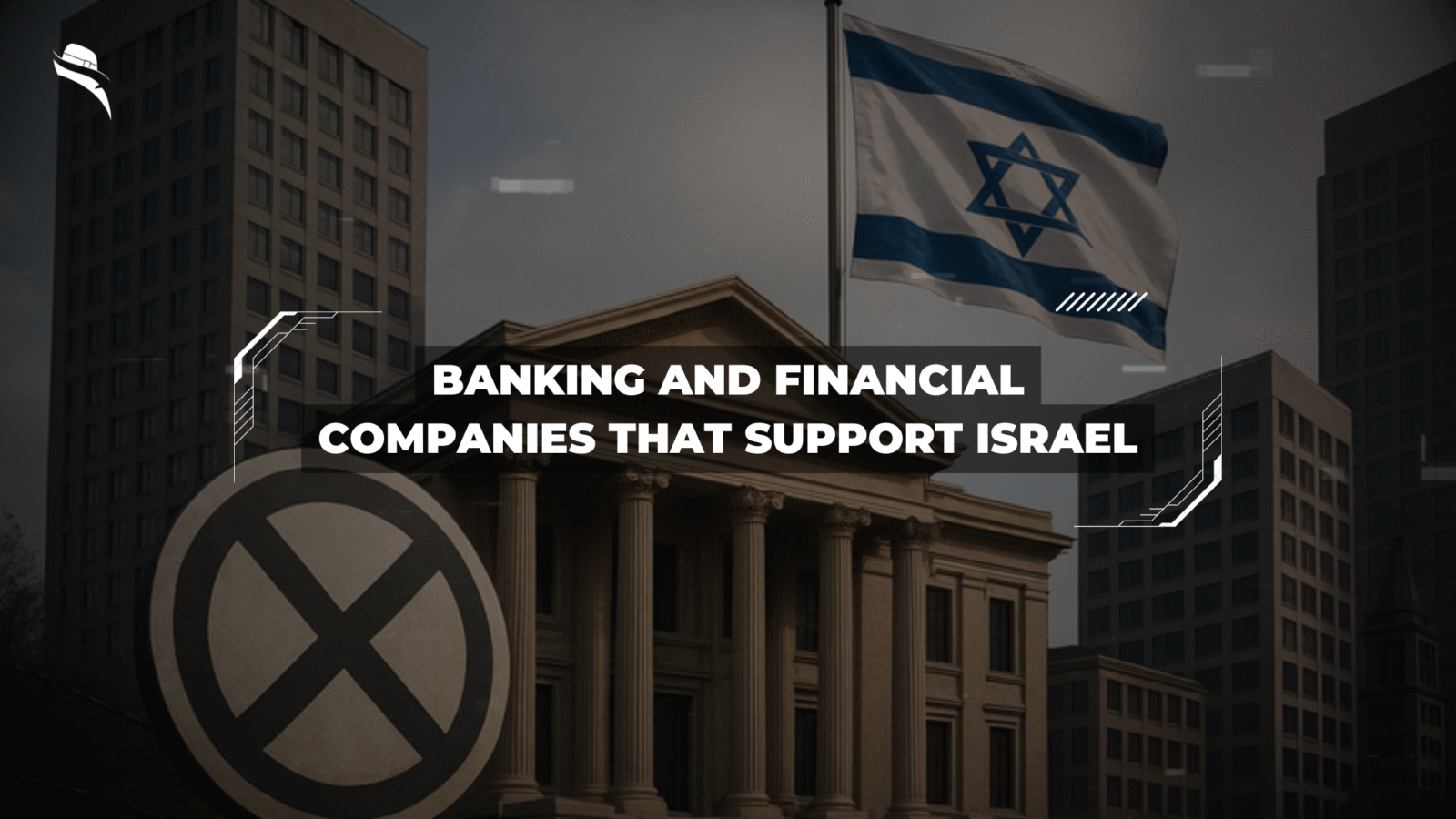
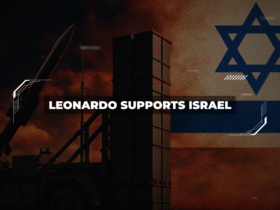

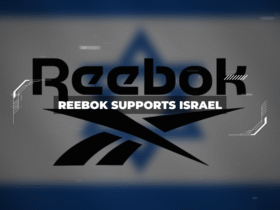
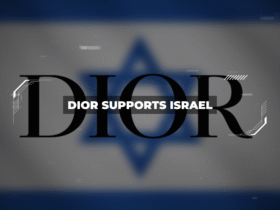
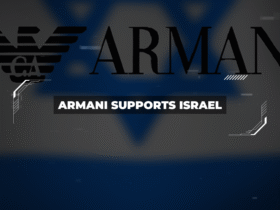
1 Comment